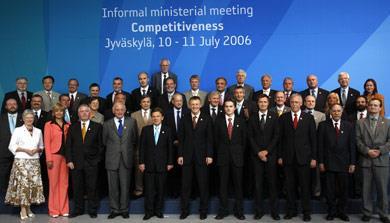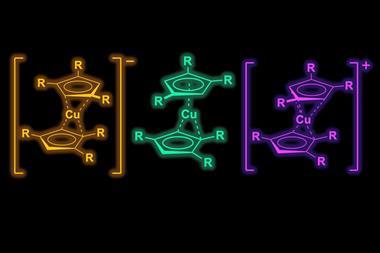Time is running out to deliver the EU's seventh research framework programme, warn politicians and stakeholders.
Helen Carmichael/Jyv?skyl?, Finland
Time is running out to deliver the EU’s seventh research framework programme (FP7), warned politicians and expert stakeholders meeting in Finland yesterday. FP7 is due to start at the beginning of 2007.
Targets set alongside the EU’s stated objective of becoming the world’s leading knowledge-based economy by 2010 (Chemistry World, June 2006, p50) have not been hit. By 2010 China is forecast to overtake Europe in R&D spending in relation to GDP, heard delegates, and the EU is now the slowest growing economy in the world.

Innovation heads the agenda for Finland’s EU presidency, which began on 1 July. EU competitiveness ministers met in Jyv?skyl?, Finland, hosted by Mauri Pekkarinen, the Finnish Minister of Trade and Industry to create a road map for innovation policy.
The informal meeting included key speeches from leading stakeholders. The EU commissioner for enterprise and industry, G?nter Verheugen, urged council ministers to move quickly to generate legislative proposals.
An extra meeting has been called later this month to push this forward. ’Innovation is not the problem for the European economy, it’s the solution,’ said Verheugen, ’it’s the only way we can achieve competitiveness’.
The president of the Finnish National Fund for Research and Development (Sitra) and former prime minister Esko Aho wants innovation-friendly markets: ’instead of blindly chasing R&D spending targets, we have to encourage business to invest in Europe,’ he said. Pharmaceuticals, energy, environment and transport are among the sectors presenting the biggest challenges and opportunities to Europe, he told the Council.
A policy focus on public R&D and education funding - a supply oriented model - is now shifting to include market demand to facilitate innovation, as well as public-private partnership .
Proposals to make both funding and research findings more accessible will help small innovative businesses. Regulation for a more efficient patent system, efficient internal markets and cutting both the quantity and cost of red tape are under discussion. EU Structural Funds should be used more intensively to finance innovation, the Council suggests. This is a larger pot of cash than that available under the FP7 framework, and is due for reform next year. Member states must commit promptly to European Technology Platforms too, and a Community-wide venture capital market is also on the wish-list.
The Council’s goal is to deliver concrete suggestions for practical policy improvements before Finland’s six month presidency is up.
EU research funding faces ethical objection
The EU’s funding programme for all scientific research risks becoming mired in conflict over embryology issues.
Exploiting a powerful science base
Europe is striving to become the world’s leading knowledge-based economy but those in the corridors of power do not recognise the contribution chemistry can make. Sean Milmo report...
Research funding is essential for Europe to become a key knowledge-based economy






No comments yet